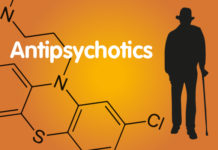Drug Treatment for Borderline Personality Disorder Not Supported By Evidence
New research published in the August issue of Psychiatric Annals evaluates the results of randomized control trials on the use of various psychotropic drugs for patients diagnosed with borderline personality disorder (BPD). Despite the “American Psychiatric Association’s practice guidelines endorsement of SSRIs as first-line therapies for BPD,” the results of the meta-analysis reveal that pharmacotherapy in BPD is “not supported by the current literature,” and “should be avoided whenever possible.”
Medication-Free Treatment in Norway: A Private Hospital Takes Center Stage
At the Hurdalsjøen Recovery Center in Norway, patients with a long history of psychiatric hospitalizations are tapering from their medications and, in a therapeutic environment that emphasizes a good diet, exercise, and asking patients "what do they want in life," are leaving their old lives as chronic patients behind.
Increased Bone Fracture Risk from SSRI Antidepressants
"Evidence from longitudinal, cross-sectional, and prospective cohort studies suggests that the use of antidepressants at therapeutic doses is associated with decreased bone mineral density...
Antidepressant Use and Cognitive Impairment After Menopause
A study of 6,998 postmenopausal women followed over 7.5 years found that antidepressant use correlated with a 70% increased risk of cognitive impairment. The...
Ritalin Causes Long-Lasting Change in Prefrontal Neurons
Drexel University researchers found that methylphenidate (Ritalin) administered to juvenile rats produced significant depressive effects on pyramidal neurons. The authors conclude that "the juvenile...
Exploring Psychiatry’s “Black Hole”: The International Institute on Psychiatric Drug Withdrawal
When Carina Håkansson sent out an invitation for a symposium on "Pharmaceuticals: Risks and Alternatives," some of the world's top scientists, along with experts-by-experience, came from 13 countries to explore better ways to respond to people in crisis.
Youth Antipsychotic Use Linked to Increased Risk of Death within Five Years
Those aged 18-24 had an increased risk of death within five years on doses above 100 mg chlorpromazine equivalents.
Most Off-Label Prescribing of Antidepressants Lacks Strong Scientific Evidence
A new study, published in the British Medical Journal, investigates the prevalence of off-label prescribing for antidepressant medication in primary care settings.
“Janssen Accused of Withholding Data on Risperdal Side Effect in Autism”
MedPageToday reports that Janssen Pharmaceuticals omitted data from a 2003 study that connected Risperdal with serious side effects. Janssen was previously sued by the FDA for marketing Risperdal for off-label uses and settled for $2.2 billion in 2013. Earlier this year, a man with autism was awarded $2.5 million after growing breasts while on Risperdal. According to MedPage, documents from this latest case reveal missing data tables from a 2003 study “designed to ferret out potential adverse effects of long-term risperidone use.” The missing tables were related to elevated prolactin levels and side effects, including gynecomastia in men.
Reduction/Discontinuation of Antipsychotics Produces Higher Long-Term Recovery
A study published today in the American Medical Association's journal JAMA Psychiatry reports that patients whose antipsychotic treatment was reduced or discontinued (DR) experienced a recovery...
Listening to the Patient Voice: The Antidepressant Withdrawal Experience
Patient advocates join with researchers and service users to present first-hand experiences of antidepressant withdrawal.
The Case Against Antipsychotics
This review of the scientific literature, stretching across six decades, makes the case that antipsychotics, over the long-term, do more harm than good. The drugs lower recovery rates and worsen functional outcomes over longer periods of time.
Relapse in Antipsychotic Drug Trials is Poorly Defined
There is a lack of consensus in the definition of ‘relapse’ across randomized controlled trials of antipsychotic maintenance treatment for schizophrenia and psychosis.
Inappropriate Antipsychotic Prescriptions to Children Keep Increasing
Clinicians are following best practice guidelines only half of the time when giving antipsychotic medications to children, and following FDA-approved indications only one-fourth of the time.
More Than Two-Thirds of Antidepressants Prescribed Against Guidelines
Results of a new study reveal that sixty-nine percent, or more than two-thirds, of patients prescribed antidepressant drugs have never, in their medical history, met the criteria for major depression. The study, published in the Journal of Clinical Psychiatry this month, also found that several demographic factors, like race and gender, were associated with the prescription of antidepressants.
FDA Safety Warning For Citalopram Did Not Improve Outcomes for Vets
Instead of reducing risk, the dose reduction recommendation made by the FDA in their safety message was associated with an increase in hospitalizations.
Less-impaired Youth Using Antipsychotics with Other Medications More Often
Use of second-generation antipsychotics (SGA) alongside other medications is growing rapidly among youth who are less impaired, according to a study published online in...
Withdrawal from Antipsychotics
A review of the scientific literature related to the withdrawal of antipsychotics: animal studies, withdrawal symptoms, tapering success rates, and consumer accounts of discontinuation.
Infants Exposed to Psychotropic Drugs During Pregnancy At Risk
New research published in the July issue of The Journal of Clinical Psychiatry found that the use of mood stabilizers, antipsychotics, antidepressants, and hypnotics during pregnancy is associated with increased health risks to the infant.
Discontinuation of Antipsychotics Improves Cognitive Functioning
A study, recently published in Psychological Medicine, examined the cognitive functioning of individuals with schizophrenia who discontinued antipsychotics, and those who maintained their antipsychotic...
The Effects of Antidepressant Exposure Across Generations: An Interview with Dr. Vance Trudeau
Dr. Vance Trudeau discusses his study's finding that antidepressants may have far-reaching, adverse effects that last up to three generations.
The Ethics of Antipsychotic Dose Reduction and Patient Rights
New research highlights the ethical responsibilities of clinicians in supporting patients who choose to reduce or discontinue antipsychotic medication.
Therapy Gets More Effective Over Time While Antidepressants Decrease in Effectiveness
New review of long-term depression data finds psychotherapy more effective over time whereas antidepressants decrease in effectiveness.
Official Guidelines on Antidepressant Discontinuation Fail Practitioners and Patients
A review of clinical practice guidelines for antidepressant discontinuation from across the English-speaking world reveals major pitfalls.
Vitamin B6 Effective in Reducing Antipsychotic Induced Akathisia
A recent RCT showed that vitamin B6 is as effective as propranolol for the treatment of akathisia.
























